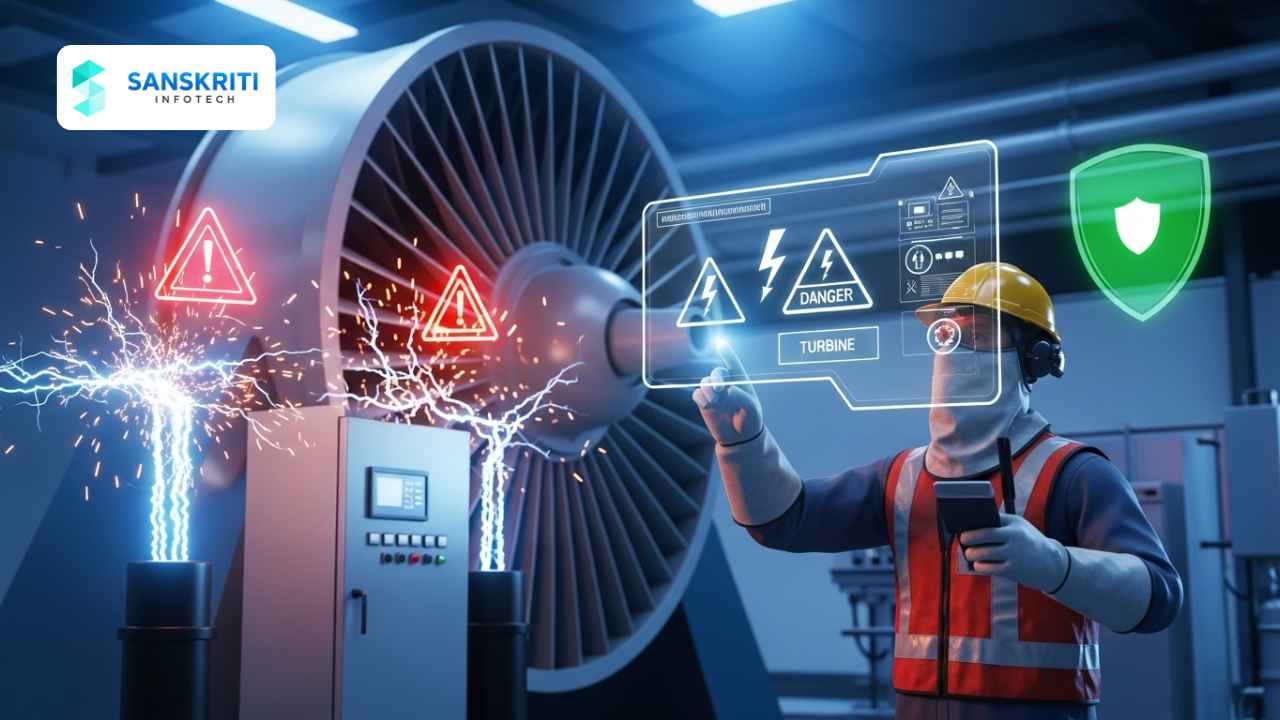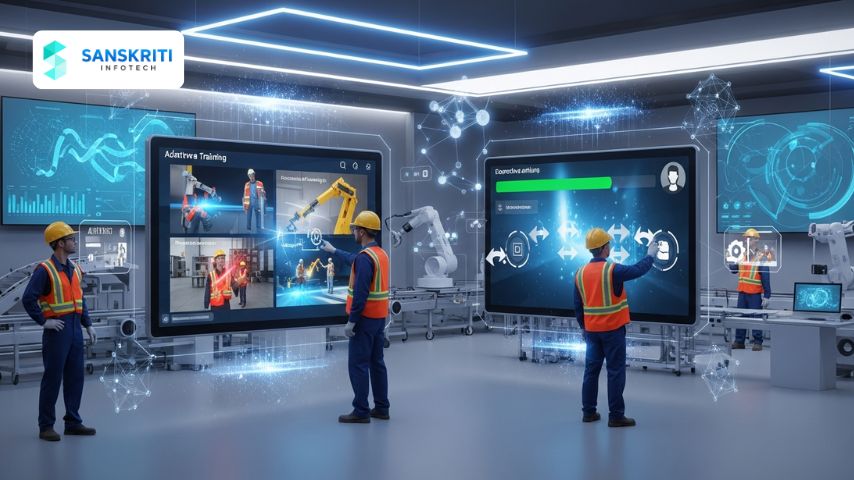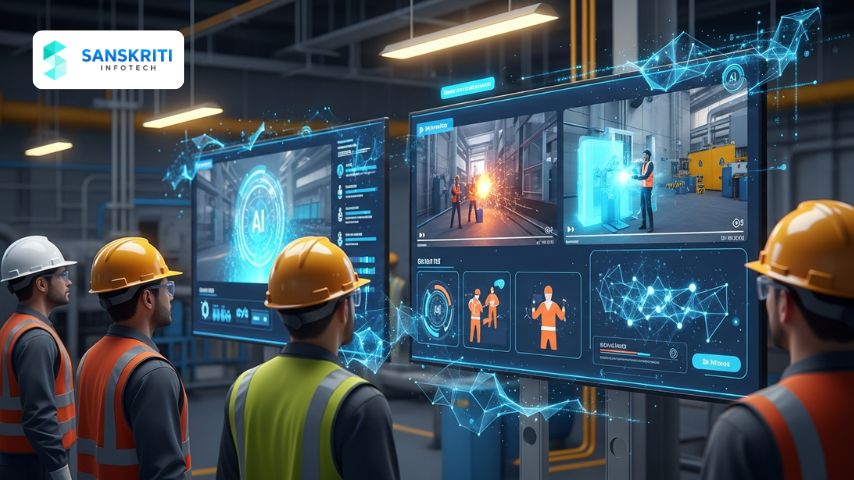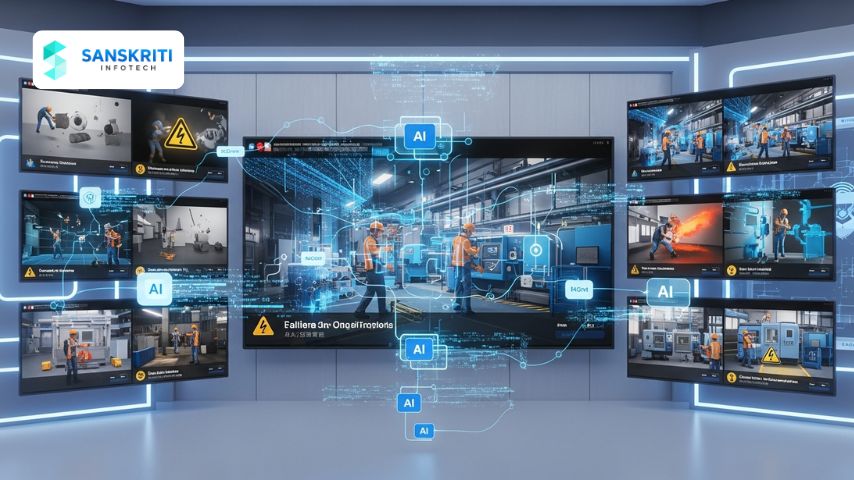Table of Contents
Introduction: Why Power Plant Safety Training Demands Innovation
Power plants operate in some of the most high-risk industrial environments. From high-voltage electrical systems to rotating turbines and confined spaces, the risks are immense. Even with strict SOPs, human error remains one of the leading causes of incidents. According to the U.S. Department of Energy, electrical hazards account for a significant share of occupational fatalities in the power sector.
The problem? Traditional safety training methods — lengthy manuals, slide decks, or classroom lectures — fail to engage workers and rarely ensure retention. Employees may pass a test but forget crucial steps when faced with real-world hazards.
This is where power plant safety animation changes the game. By using immersive 3D visuals to demonstrate electrical hazards, turbine safety, lockout/tagout (LOTO), and confined space entry, plants can deliver impactful, memorable training that reduces incidents and ensures compliance. Learn more about regulatory standards at OSHA Electrical Safety Standards.
Explore industry-specific safety animation for the power sector at 3D Safety Animation for Power and Utilities.
The Role of Power Plant Safety Animation in Modern Training
Regulatory bodies such as OSHA and IEEE emphasize the need for consistent, effective safety training in power generation facilities. But compliance on paper is not enough — workers need to understand hazards visually and practically.
Power plant safety animation provides:
- Visual Learning for Complex Hazards
- Standardized Training Across Shifts
- Safe Hazard Simulation
- Multilingual Adaptation
For instance, a U.S.-based utility company used electrical hazard animations during onboarding and reduced near-miss incidents by 30% in the first year.
Electrical Hazard Training with 3D Animation
High-voltage systems are a constant danger in power plants. Workers often underestimate arc flash, grounding errors, or PPE misuse.
With 3D animation, training can cover:
- Arc Flash Simulation
- PPE Demonstrations
- Grounding & Isolation Procedures
- Emergency Response Scenarios
Animations not only explain safe practices but also show the catastrophic consequences of negligence. This visual reinforcement improves long-term retention and compliance. For more resources, see IEEE Electrical Safety Resources.
Turbine & Mechanical Safety Explained Visually
Steam and gas turbines involve high-speed rotating machinery, high pressure, and thermal hazards. Even small mistakes during inspection or maintenance can lead to life-threatening accidents.
Safety animations illustrate:
- Turbine Lockout/Tagout (LOTO)
- Blade Inspection & Safe Entry
- Hot Surface Awareness
- Vibration & Noise Hazards
For example, a Southeast Asian power company introduced turbine safety animations during contractor training and reported a 25% drop in mechanical safety violations. See DOE Turbine Safety Guidelines for further information.
Confined Space & PPE Training with Animation
Confined spaces in power plants — such as boilers, ducts, and tanks — pose serious risks like oxygen deficiency, toxic gases, and entrapment.
Animations bring confined space entry protocols to life by demonstrating:
- Permit-to-Work Requirements
- Atmospheric Testing
- Proper Ventilation
- Rescue Procedures
Additionally, PPE usage animations ensure workers correctly don fall protection, respiratory equipment, and electrical-resistant gear. For best practices, visit IEA Safety in Power Plants.
Benefits for HSE Managers and Training Leaders
For HSE leaders, safety training is about measurable outcomes: fewer incidents, lower downtime, and regulatory compliance.
Key benefits of power plant safety animation:
- Incident Reduction
- Audit Readiness
- Faster Onboarding
- Cost-Effective Long-Term Training
According to a McKinsey report on industrial learning, digital training methods like animation improve knowledge retention by up to 60% compared to traditional formats.
Real-World Adoption of Power Plant Safety Animation
Industry leaders are increasingly investing in safety animations:
- A European energy company integrated electrical hazard animations plant-wide, resulting in improved audit scores.
- An Indian thermal power station used turbine safety modules to train contractors, reducing turbine maintenance accidents.
- A Middle Eastern utility provider used multilingual confined space animations for its international workforce.
ROI of Safety Animation in Power & Utilities
Power plant accidents are costly. Beyond injuries and downtime, regulatory fines and reputational damage can be devastating. With the average OSHA electrical violation costing over $14,000 per incident, preventing just a few incidents easily covers the cost of developing custom safety animations.
Additional ROI drivers:
- Reduced Lost-Time Injuries (LTIs)
- Improved Workforce Confidence
- Lower Insurance Premiums
- Scalable Training Resources
Conclusion: Building a Safer Future in Power Plants
Electrical hazards, turbine risks, and confined spaces make power plant safety one of the most challenging areas for HSE teams. Traditional training simply cannot match the clarity and impact of safety animation.
At Sanskriti Infotech, we design custom power plant safety animations that align with OSHA, IEEE, and DOE standards while addressing your site-specific hazards. From electrical safety to turbine operations, our visuals ensure workers learn faster, retain knowledge longer, and apply it effectively on the job.
Ready to upgrade your power plant safety training? Contact Sanskriti Infotech today and let’s build a safer workforce together.






